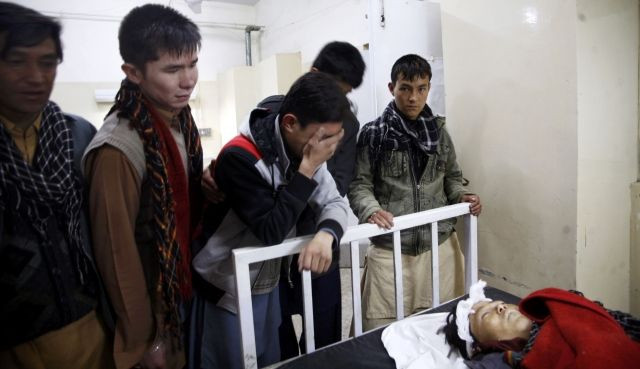Pakistan Faces Fury For Failing To Stop Sectarian Violence After Latest Carnage Of Shiites

The Pakistani government came under fire Sunday for security lapses after a bombing in Quetta Saturday killed at least 81 people.
The governor of Balochistan province, Nawab Zulfikar Ali Magsi, accused intelligence and law enforcement agencies of being unable to maintain law and order, saying their agents were either “too scared or too clueless.”
Saturday’s attack was carried out by a Sunni militant group targeting Hazaras, a Shi'ite ethnic group, on the outskirts of the southwestern city of Quetta.
“Seemingly, the agents are either too scared to go after the terror-mongers or too clueless to even know who they are dealing with,” Magsi told Pakistan’s Geo News after visiting wounded victims in a Quetta military hospital.
“It’s their job to pre-empt such attacks. That’s what they are paid for. They failed all these innocent people who died in this catastrophic bomb blast,” the governor said.
Magsi announced compensation of 100,000 rupees ($1,000) for the families of each victim killed.
Shi'ite political organizations called for a strike in Quetta Sunday to protest the latest carnage, Reuters reported. Many shops and bazaars were closed.
On Saturday, the Sunni extremist group Lashkar-e-Jhangvi (LeJ) claimed responsibility for the attack, according to Reuters.
Last month, LeJ claimed responsibility for two deadly suicide bombings in another Quetta neighborhood, Alamdar Road, that killed 85 Shi'ite Muslims. Authorities had described the twin bombings as one of the worst attacks on the Shi'ite minority.
Following last month’s attack, Shiite leaders called on Pakistan's military to take over security in Quetta and quell Sunni extremism.
Magsi was made provincial chief executive after the government of Chief Minister Nawab Aslam Raisani was sacked following the January attack.
The schism between the two major denominations of Islam developed after Prophet Muhammad died in 632 and his followers split on the legitimate succession.
LeJ believes that Shi'ites insult the close companions of Prophet Muhammad, and are therefore not Muslims. The banned Sunni militant group claims killing Shiites is justified in Islam.
The Hazaras, who practice Shi'a Islam, in Sunni-majority Pakistan and Afghanistan, blame the Pakistani government for its negligence in acting against Sunni extremism to contain the violence.
Sunni extremists claim that the Hazaras are proxies of Iran in Pakistan. At least 600,000 Hazaras live in Quetta, located on a key Shi'ite pilgrimage route to predominantly Shi'ite Iran.
According to Human Rights Watch, more than 400 Shiites were killed in Pakistan last year. The rights group said more thaen 125 were killed in Balochistan province, most of them Hazaras. Some hardline Shi'ite groups have struck back by killing Sunni clerics.
© Copyright IBTimes 2025. All rights reserved.






















